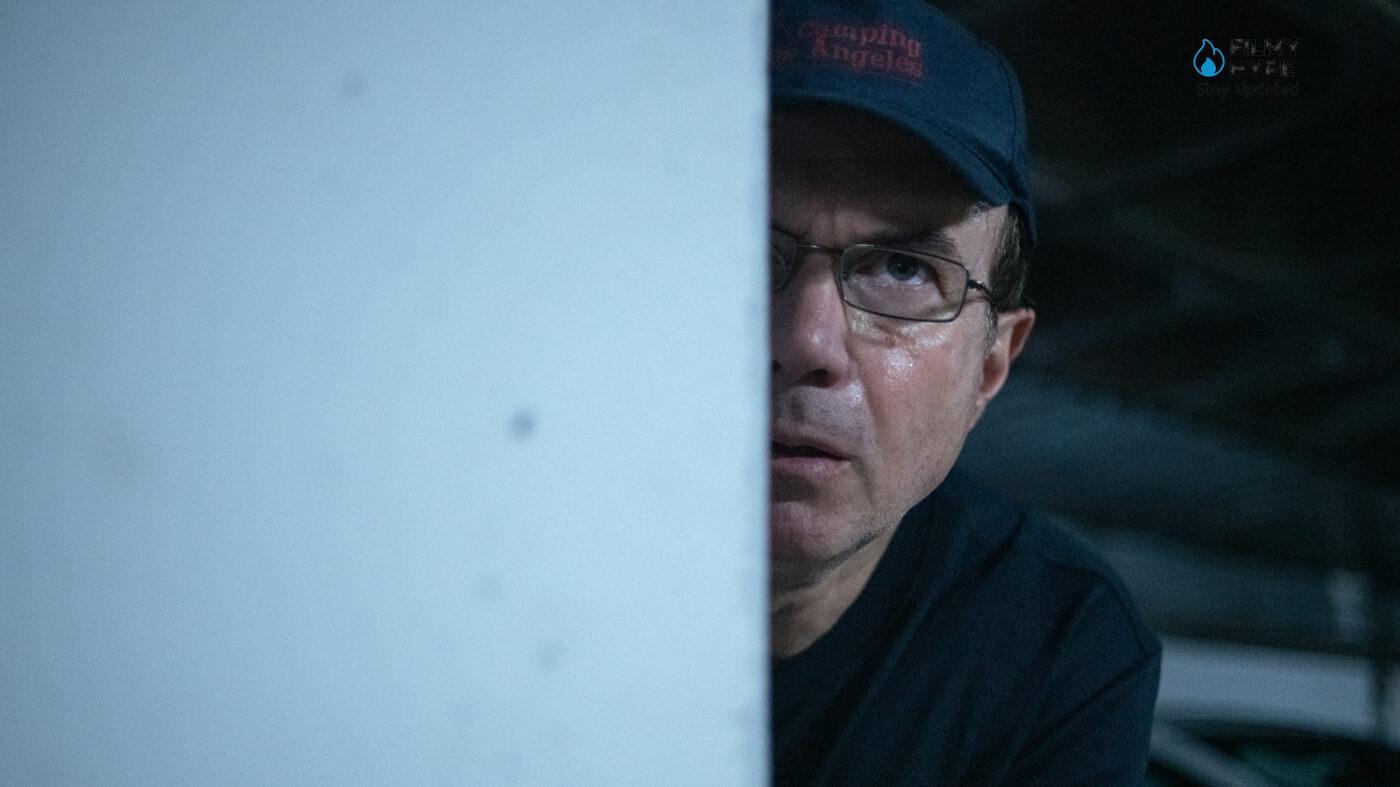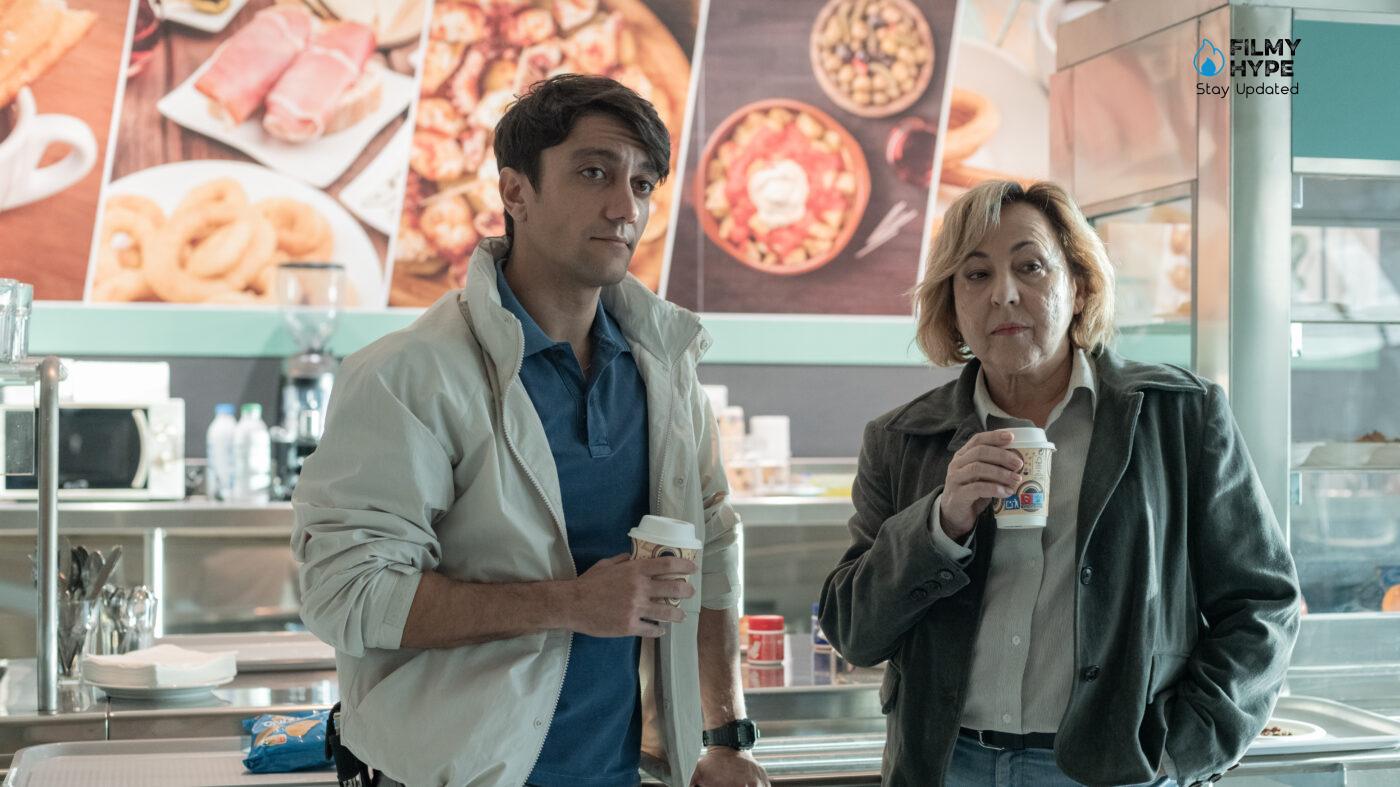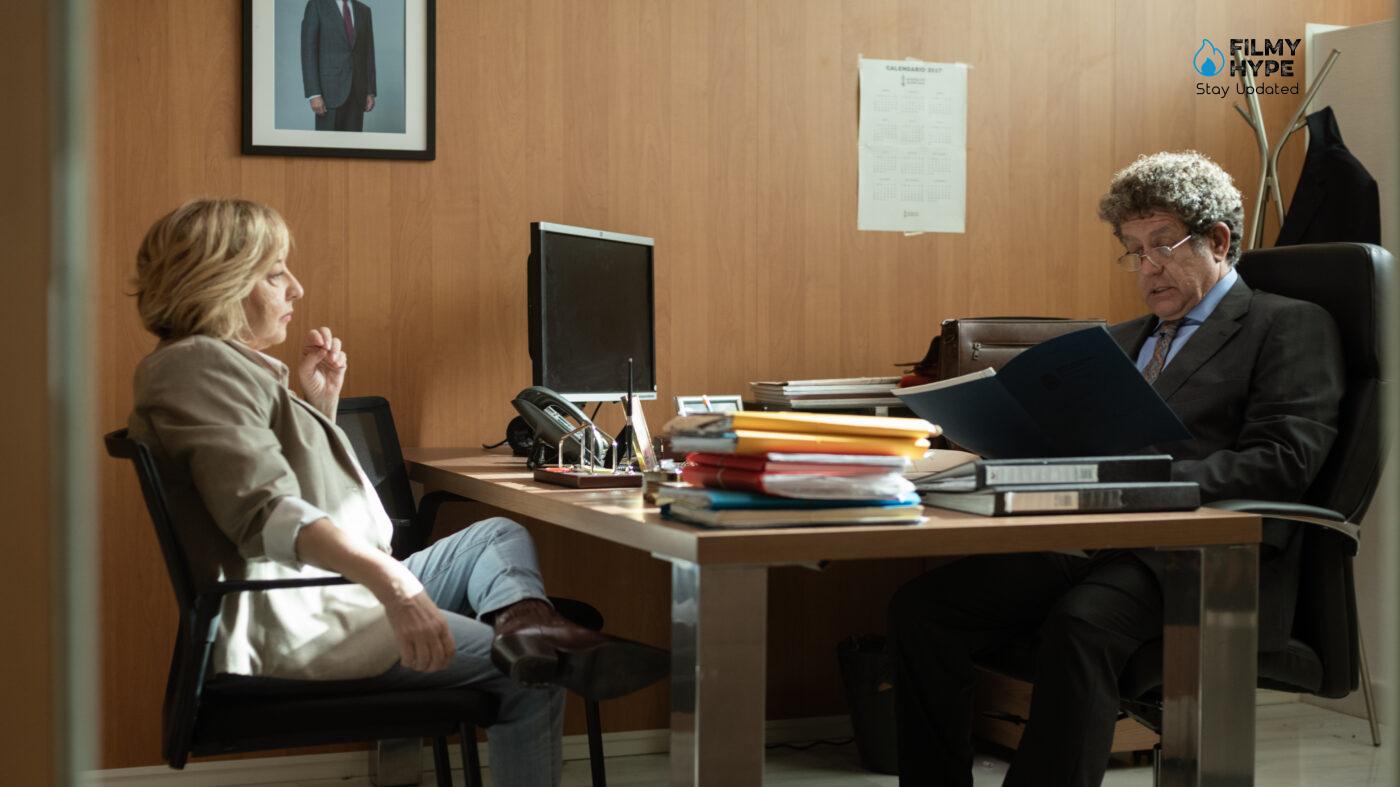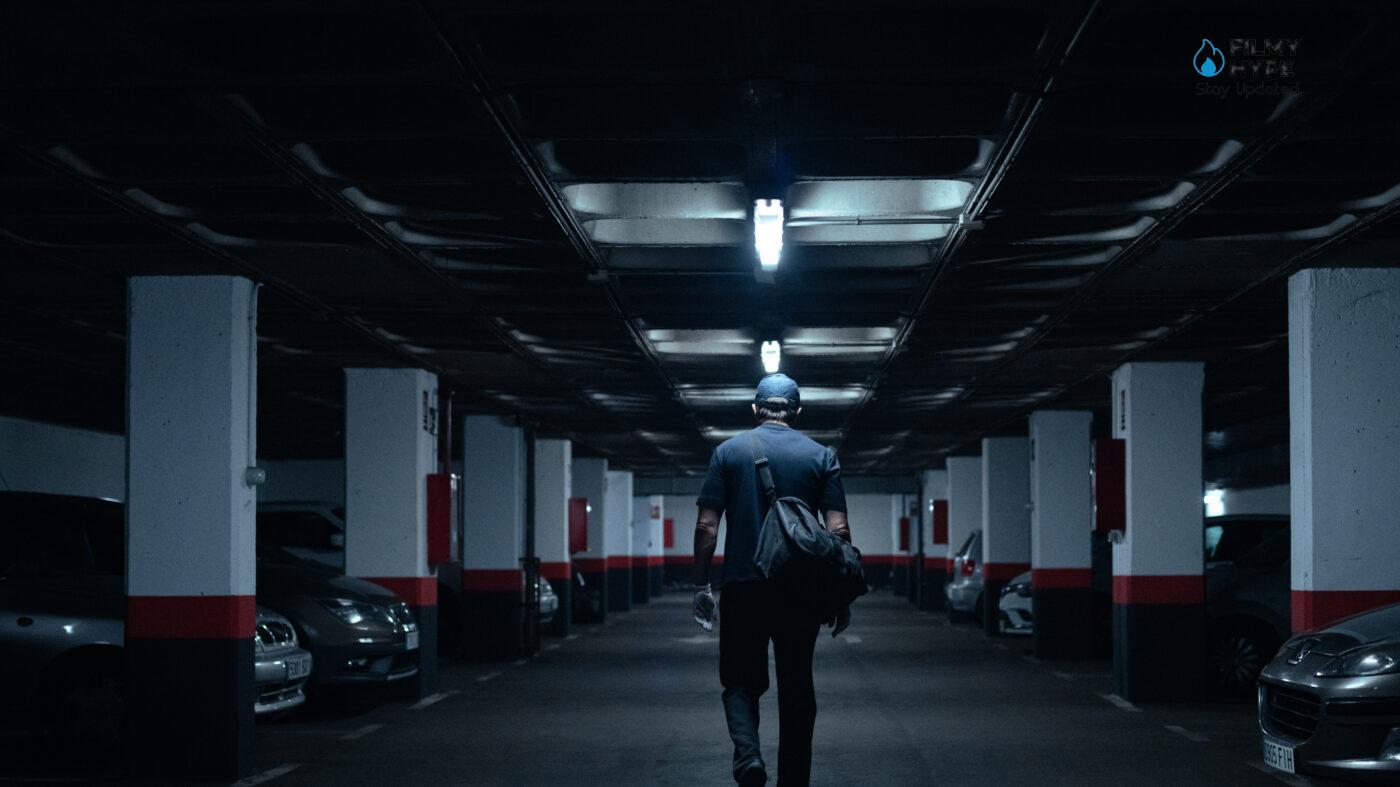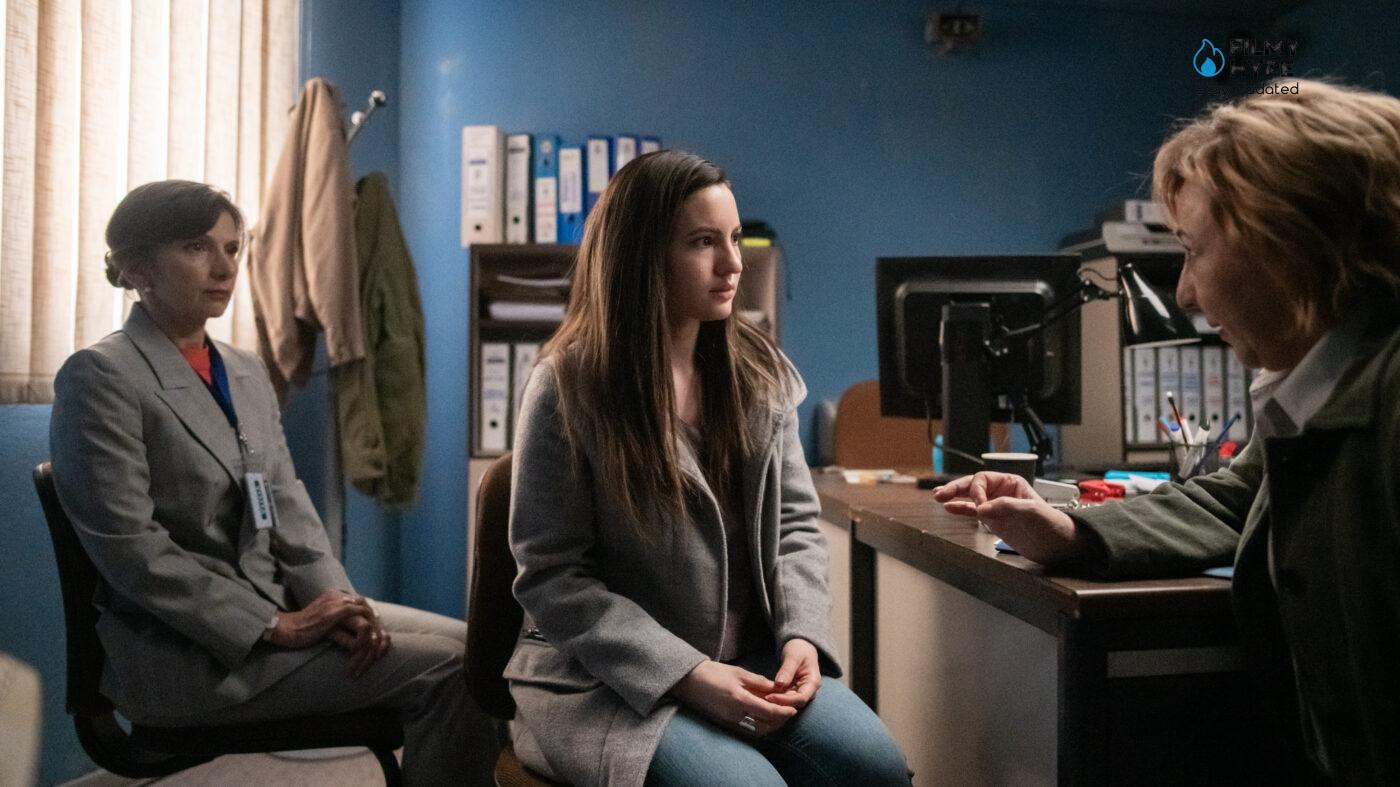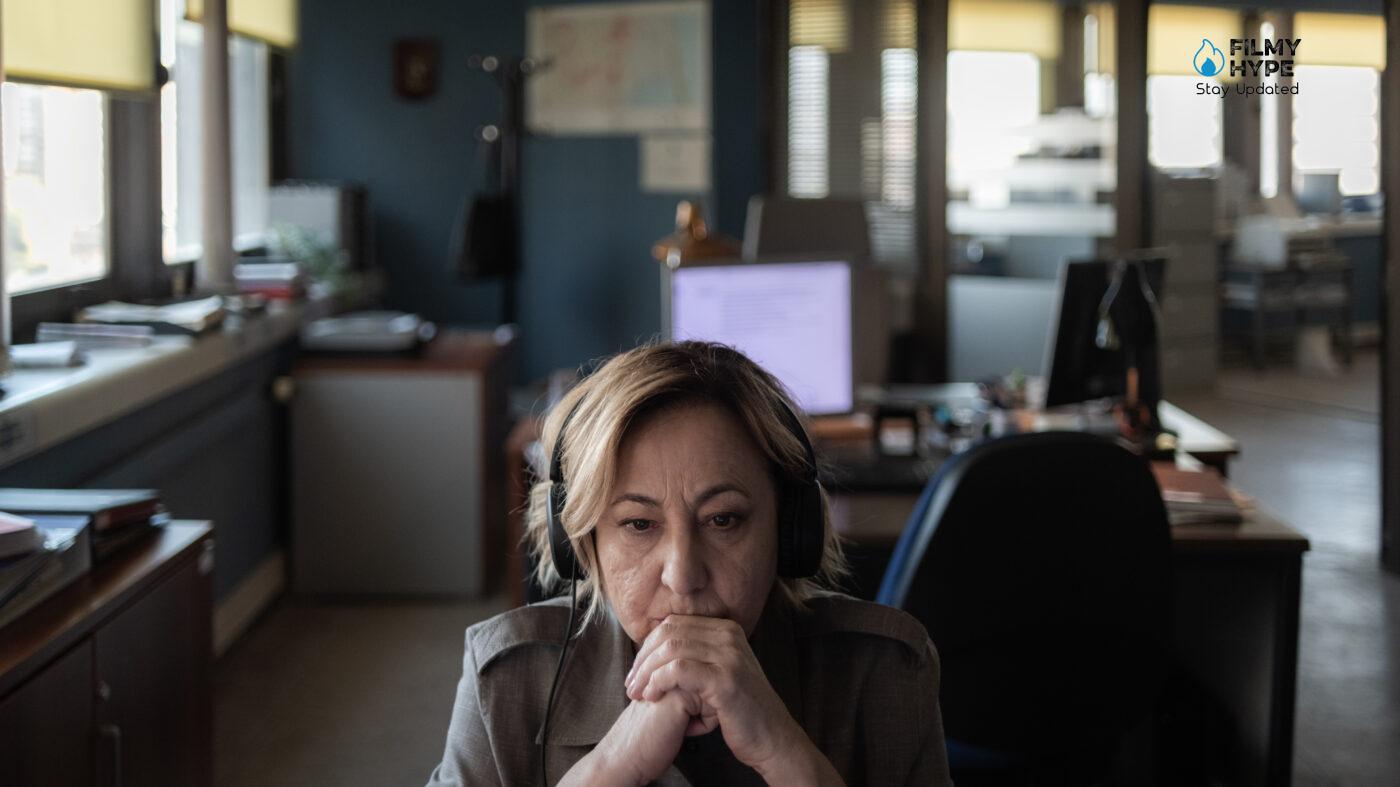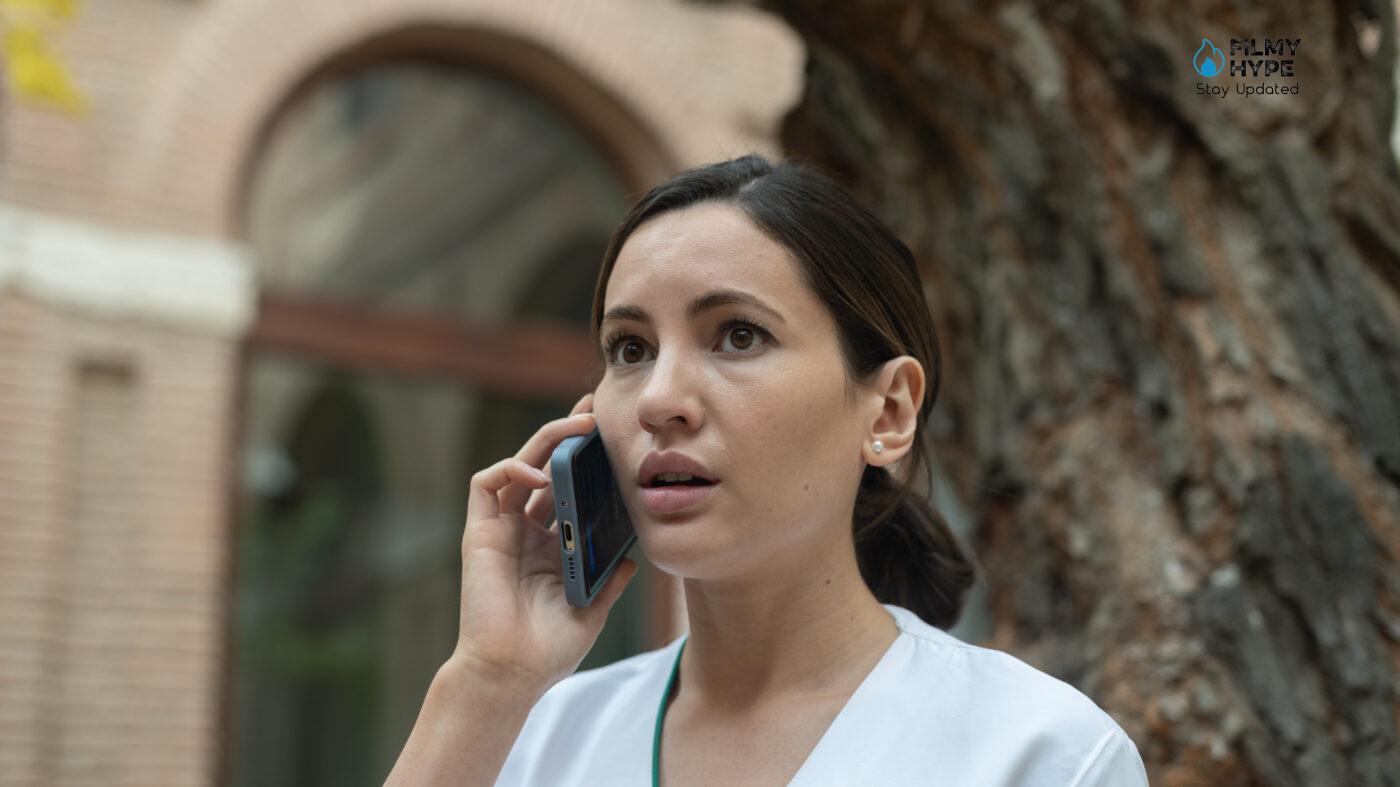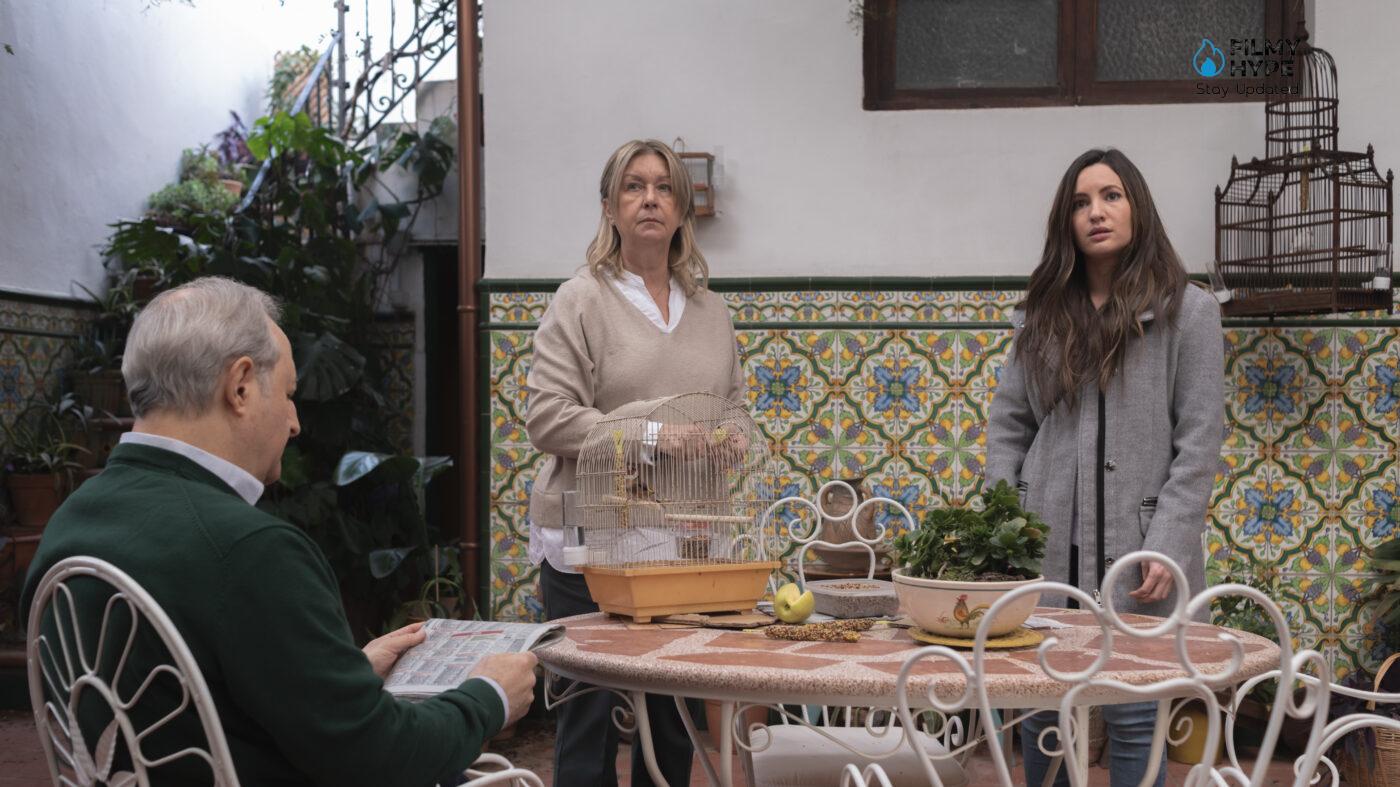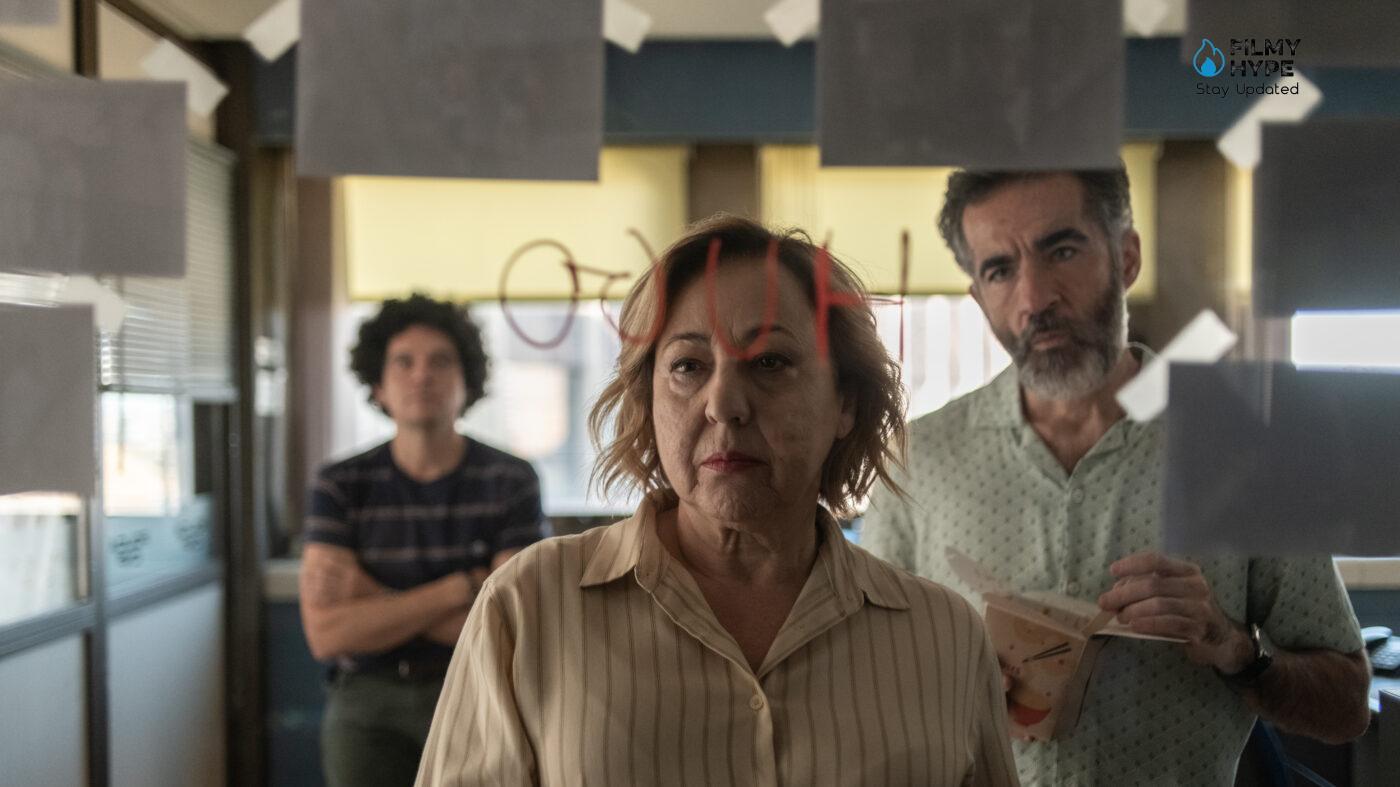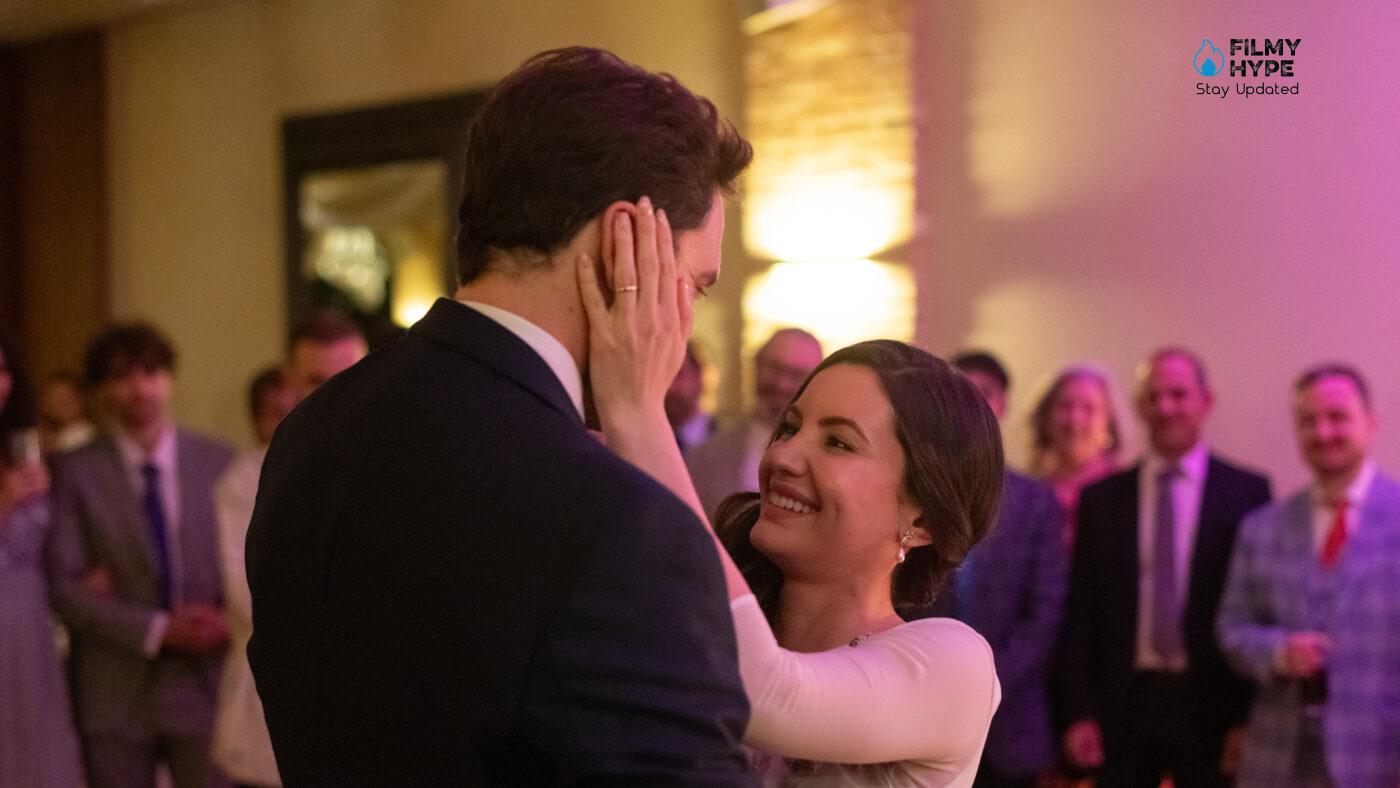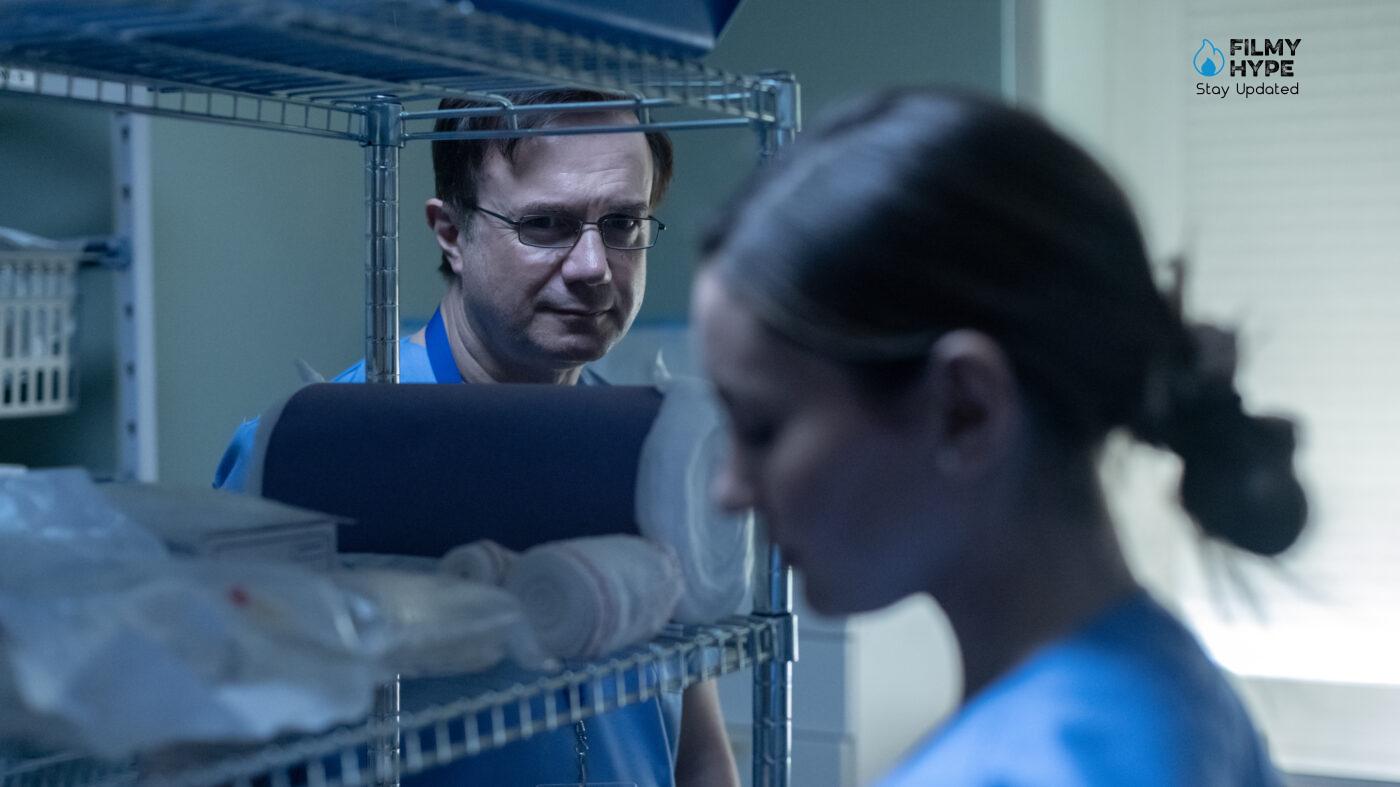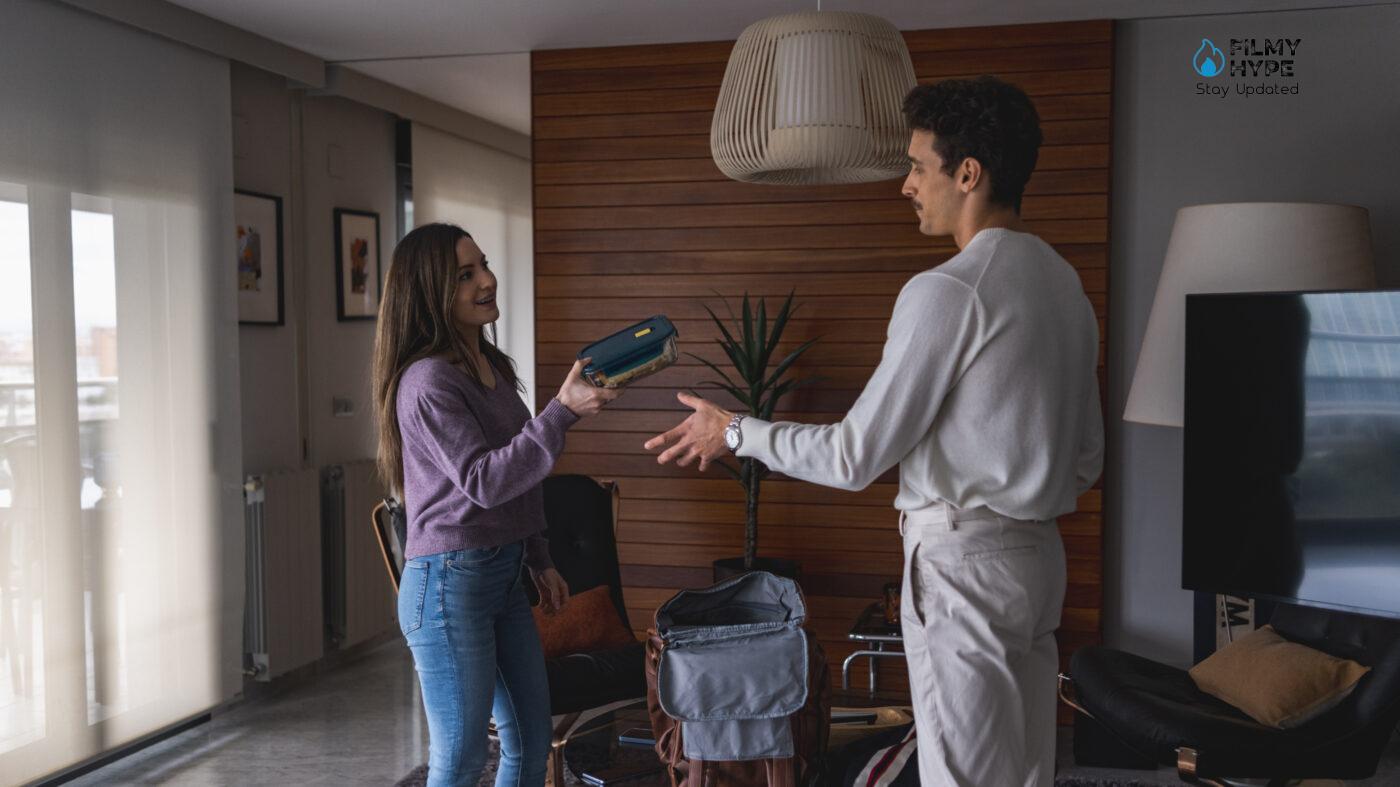A Widow’s Game Review: If You Love True Crimes Look at A Widow’s Game on Netflix
New true crime A Widow’s Game, available on Netflix from May 30, is the confirmation. Inspired by a news happened, the murder of a man with seven stab wounds in Valencia in August 2017, this film sees Carlos Sedes behind the camera, the same director as the hit series Asunta – also a true crime on the true story of the murder of Asunta Basterra- and his sophisticated eye can be seen all in every scene, in every shot and in a story style that captures the viewer and transports him to the twisted, complex, broken minds of the protagonists of this terrible story. There is something hypnotic in the well-made true crimes: it is not just about the morbid curiosity for the crime news, but about the possibility of looking into the abysses of the human soul through the lenses of fiction.

It deals with A Widow’s Game, a feature film still crime and again inspired by a true story (the crime of Paitraix), based not much on the tense aspect linked to the resolution of the case by thriller, but more than anything else on the desire to go to dig into minds of those involved, both on one side and the other of the barricade. Both on the side of those who investigate and on the side of those investigated. A particularly risky choice, especially for a product streaming, because it necessarily ends with putting aside the entertainment aspect to favor a more compact film. This is what happens, even if, from good Spanish production, the title does not give up some classic mechanisms from soap. The real problem arises when the characters under examination do not present a fairly thorough writing. Both on the front of the investigator and on that of the person under investigation.
A Widow’s Game Review: The Story Plot
One summer morning in 2017, on the cell phone of an inspector from the city of Valencia (Carmen Machi), comes the report of a heinous murder which involves a young man named Antonio Navarro Cedrán. Any guy, inexplicably stabbed several times in the back in an underground parking lot, following what appears to be a crime carefully thought out and carried out with a certain brutality. The family is upset about it, but not as much as his wife, Maje (Ivana Baquero). At the beginning of the investigation, the woman is the last on the suspect list, but the inspector soon begins to review her idea of her because of her behavior and depositions. The track soon turns out to be right, and with wiretapping, Pandora’s box is uncovered in another reality, opposite to that which appears, in which Maje is not a faithful and grieved wife, but a skilled double agent, a serial traitor, and one full-blown manipulator.
His “victim” is one of his lovers, a doctor who works at the hospital where the woman is employed as a nurse. This Salva (Tristán Ulloa), a quiet middle-aged man and a family man who, on the push of his young lover, will become the author of the murder because I convince Antonio that he was an abusive husband, who twisted his naive and innocent Maje. A version that Save will want to believe to the last useful moment, even after the arrest of the two and the communication by the police of the real version of the facts. The film intelligently chooses not to take the most traveled path, namely that of the miniseries, preferring a compact narration in feature format, lasting about two hours.
This structure is divided into three chapters, each told from the point of view of one of the main protagonists: the detective (an extraordinary Carmen Machi), the seductive and calculating Maje (Ivana Baquero), and the fragile and infatuated Salva (Tristán Ulloa), the material author of the murder. Each segment adds new nuances to the overall picture, playing on the displacement of the viewer and the overlap between objective truth and subjective perception. The choice not to show the murder, but to build tension around its preparation and its consequences, contributes to maintaining a sober and ethical tone. It is in the details, in the intercepted calls, in the silences between the words, that A Widow’s Game finds its expressive power. The real recordings, used in shape displayed on the screen, become the narrative heart of the story, amplifying the feeling of restlessness and moral ambiguity.
A Widow’s Game Review and Analysis
The film is based on three main interpretations that give body and soul to characters as realistic as they are archetypal. Carmen Machi confirms its versatility by embodying an analytical and concrete policewoman, a figure that recalls the most sober detectives of yellow literature. His inquiring gaze and controlled tone help build the tense atmosphere of the film, without ever leading to complacency. Ivana Baquero, who played the protagonist of The Maze of the Faun by Guillermo Del Toro, plays the role of Maje with a subtle balance between charm and threat. She is not a textbook femme fatale, but an ordinary woman who uses other people’s emotions as levers to get what she wants. Just this “normal” makes his character even more disturbing. Tristán Ulloa Finally, it offers one of his most contained and touching tests, returning a man manipulated, destroyed by desire, and finally bent under the weight of his choices.
The direction of Carlos Sedes avoids unnecessary virtuosity and focuses everything on sober realism, but never flat. The use of the camera by hand, the close-ups, and a dark but natural photograph help to create a claustrophobic atmosphere, which reflects the psychological pressure to which the characters are subjected. Also, the soundtrack is used with measure: it does not accompany emotion, but contradicts or defuses it, leaving room for a subtle but constant tension. Some subplots, such as Maje’s relationship with the other men in her life or Salva’s drift, are only mentioned. However, this choice seems functional to the goal of the film: not to build an exhaustive portrait, but to return an impression, a photograph deformed from the subjective point of view of the protagonists.

A Widow’s Game is not a simple account of these tragic events: it is a broader reflection on the mechanisms of power in relationships, on the use of emotions as a control tool, and on how easy it is for anyone, in extreme conditions, to become a victim or executioner. There is no room for redemption, but neither for pure moral judgment. In the panorama of European true crime, A Widow’s Game stands out for its sober approach, its coherent narrative construction, and the desire not to indulge in sensationalism. A successful example of how we can transform the news into a story without losing the humanity of reality. A dark, intelligent, and disturbing thriller that invites more to reflect than to be scandalized. A Widow’s Game is a delicate film for Spaniards, given that the case it deals with very shaken public opinion in the country. This responsibility is felt a lot in the title, which in fact sacrifices most of the essential ingredients for spectacularization, deciding instead to use material almost in a documentary sense and never showing the factual part of the murder.
Sedes creates one triangular structure, in which we pass from one part of the investigation to the other, retracing it through the point of view of the inspector, Maje, and Salva. The three performers offer excellent tests, sober, respectful, and as delicate as possible. Especially Ivana Baquero turns out very credible in staging an ambiguous and chameleon-like character, above all thanks to a fine ability to juggle a register that often puts her in a position to be seen as a villain without appeal. The problem is that actors are often called to make up for shortcomings when writing. It is, in fact, paradoxically, the weakest aspect of A Widow’s Game, because where the direction and assembly are ordered and weighted according to the objectives of the film, both the construction of the structure and the deepening of the characters result didactic manner. Leaving aside the tense aspect, sacrificed almost by choice, and the cast on the roughest aspect of the story (in harmony with the Spanish spirit), the characters are flattened on the role they play in the affair with the result of not being able to convincingly involve the spectators in their point of view. A mortal sin for such a film.
One of the most interesting aspects of this film, lasting just over two hours, is the structure of the narrative that divides the story into several parts, each of which is told from a different point of view. And if we start watching the film through the eyes of the policewoman responsible for the investigation, then we drastically change our gaze to go into the killer’s mind until we move on to that of his accomplice, and so on. A change of perspectives that allows the film to enter into the psychological details of the story without remaining on the surface or taking everything for granted, a narrative expedient that allows you to show how a brutal gesture like that of a cold-blooded murder has been achieved and how the consequences of a crazy and selfish action fall on many more people than one might think initially. Carlos Sedes, just as he had done with the story of Asunta Basterra, plunges into the watermarks of a crime for which we immediately discover the manager, but, after all, this is not the purpose of the film.
The story wants to show the origins, development, and consequences of profound psychological hardships, human weaknesses, cowardice, and violence. Let yourself be amazed by this film that will transport you to a world of healthy human relationships and sick human relationships. A world made of selfishness, brutality, but also of great fragility. A world so realistic in its tragedy that it manages to completely involve the viewer, who, although accustomed to this kind of story increasingly appreciated by the public, with this quality of direction, script, and attention to the characters, finds on the screen a product truly worthy of note. Let yourself be surprised by A Widow’s Game on Netflix, watch this film without worrying about knowing the story it tells first, do it with an open heart and a careful look. Immerse yourself in the streets of a hot Valencia in 2017 and the complicated lives of police officers, parents, lovers, and murderers. Do it because you will be rewarded by a strong story, by a brilliant direction, and by a story ready to enter it.
A Widow’s Game Review: The Last Words
A Widow’s Game is a sober and well-built true crime, which manages to tell a murky story without indulging in sensationalism. The film stands out for its effective narrative structure, the intelligent use of sound, and three solid interpretations that give depth to a story of manipulation and moral ambiguity. It does not reinvent gender, but faces it with dignity and awareness, giving two hours of restrained tension and reflection on the dark side of the human soul. On Netflix, there is the new crime of Spaniard Carlos Sedes, still inspired by a real news story. It is A Widow’s Game, a title structured from three different points of view in order to go into the analysis of all involved in the case, sacrificing the spectacular elements and the tension component for a sober, almost documentary reading. Paradoxically, the problem lies in writing, shaky and flattened, despite the good tests of the interpreters.
Cast: Ivana Baquero, Tristán Ulloa, Carmen Machi, Marta Belenguer, Pepe Ocio
Director: Carlos Sedes
Streaming Platform: Netflix
Filmyhype.com Ratings: 3.5/5 (three and a half stars)



